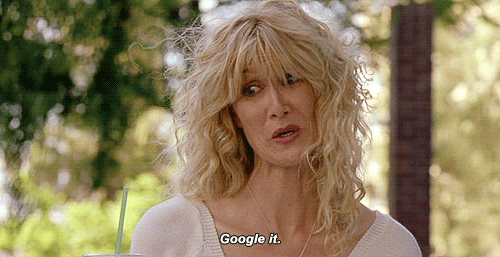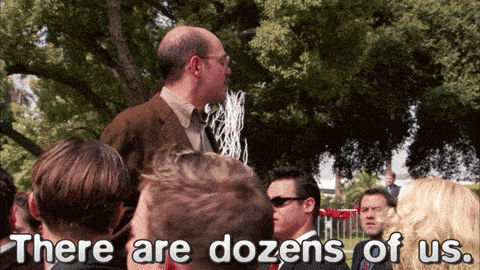The Case for Learning
- Rachel

- Feb 5, 2020
- 5 min read
The farther we get into winter, the harder it is to decide on what topic to write about this week. My instincts always say to stick with an agronomy topic, but at some point, if I am dreading writing another blog on an agronomy topic, there is a real chance you aren’t interested in reading another blog on an agronomy topic. It’s that time of year though. Everyone and their mother is having winter meetings and data summaries. (Us included—mark your calendars for February 13th. It’s gonna be amazing.) These meetings are always great opportunities to hear the latest and greatest in products and results, see some neighbors and interact face to face with your trusted advisors, whether that is chemical or seed reps, someone who analyzes your data, an extension educator, or your loan advisor. At the beginning, I think most of us would consider this time well spent. Or maybe we are just ready to get out of the office or the shop and stretch our legs a bit. As the winter grinds on, we may struggle to motivate ourselves to add another one to the calendar. It made me wonder though---what are the most important parts of these meetings? Is it the interactions? The data? The free meal? What makes meetings stand out to you? What makes a meeting, a truly great one?
As I was sitting down to write this, I pulled out a box of my college papers from undergrad. Notes from soils and plant science and ag business courses. I suppose I held on to them in case I ever needed them as a reference. But in the years since I graduated, I don’t think I’ve opened that box once. Why? Likely because everything I need to know is available from Dr. Google. Got a question about soil fertility? Google it. Lifecycle of an insect? Google it. What chemical to kill a certain weed? Google it. It makes me wonder if we’ve lost something in this current age of google. No longer do I have to commit anything to long term memory. Instead I can simply find the info I need, and then dispose of it immediately, knowing Google will always have the answer.

I started sifting through some of those boxes. A score card from a soil judging contest, a psychrometric chart from a grain handling class, a business plan that from the looks of the comments on it, would not have been successful, a hand drawn cross section of plant leaves. It’s interesting to me which of that material has stuck with me still and which looks brand new and fresh and if I didn’t recognize my own handwriting, would have sworn it wasn’t taught in any of my classes. Why was certain material truly learned? And was all the other info, just rote memorization, soon to be forgotten?

I think there is a case to be made for trying to cut back on the easy in, easy out way we consume data . Of sitting with and ruminating on information and trying to store it in the permanent memory banks rather than let it slide right through without so much as a second glance. I found an article echoing my thoughts after I began to write this. According to the article, it is true that from a neurological standpoint, the way we consume information has changed. Because of the length and style of content online and in social media, our ability to consume longer amounts of text has shortened, and our ability to interpret text at a deeper level has also decreased. Congrats on getting this far through the blog if that is truly the case. (I should mention that while I make a fuss about our ability to learn being dampened, the author of the article I just mentioned stated that Socrates was distressed about the development of writing and feared that people would no longer use their memories, but would simply substitute their writing for any mental knowledge they used to utilize.)
In the case for continual learning, think on these benefits for those who prioritize deep, long term, learning.

· “When people learn, they gain confidence for trying new things and stretching themselves.” If that skill isn’t necessary in agriculture, I don’t know what is. Keep trying new things and stretching folks.
· Promote a healthy brain. (I’m not making this up—University of California at Irvine study showed continual learning helped promote a healthy, high functioning brain.)
· Broaden our horizons. This is both through knowledge acquisition on a variety of topics from a variety of sources and the broadening of social horizons when we learn and share new info in a social setting.
Think back to your time of formal education or the last winter meeting you went to. What is that information that you used to know that has slipped between your mental cracks? For me it is scientific weed names. Now, I know that they aren’t really essential to my existence, but at one point I knew the scientific name for about 2 or 3 dozen weeds. And I am oddly sentimental about losing that knowledge. I don't really know why I still wish I had that knowledge, but the heart wants what it wants. In the coming months, I am going to try and learn those names again. Someone check on me in a week or two and see if I’ve flaked out yet. Or maybe just the fact that I am putting this info on a blog with dozens of readers will keep me accountable.

I challenge you. Pick out a topic that you keep wishing you knew more about, and commit to actually learning that info. And let’s make is specific. Pick out a single topic, not something broad like "I want to learn how to be a better farmer", or "how to market grain". Dial it in. Do you want to learn more about fall weed management? Futures contracting and basis for grain marketing? Foliar applied macronutrients? Corn bacterial diseases? Maybe its not even something with farming at all. Doesn’t matter. Then find 4 or 5 articles, or a free online course, or a winter meeting, or some youtube videos on the topic and schedule time in to consume that info. (What gets scheduled gets done! Plan this time for growing yourself and your operation.) Realize the value of learning and get to it. We'd love it if you share what you are learning in the comments below. Maybe we can all learn something together.


We hope that you take time to attend our winter Crop Shop on Feb. 13th. We are proud of the local data we have curated as well as our powerhouse lineup of guest speakers. This would be an incredible jump start to committing to learn more every day. Let us know if you have questions. We are excited to see you there and excited to hear about what topic you are focusing in on for this first quarter of 2020.
Resources:




Comments